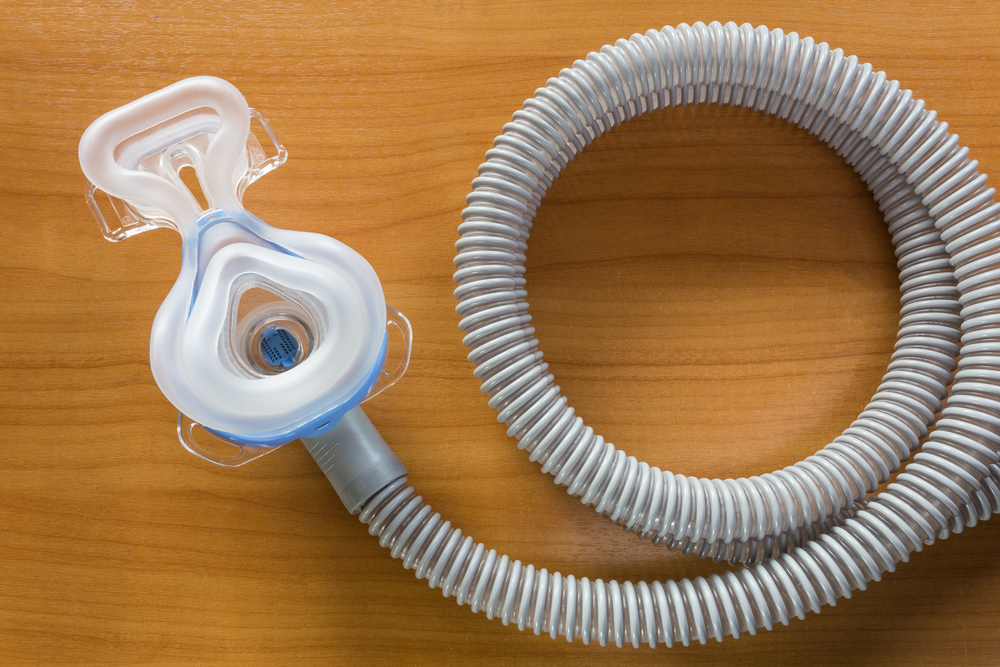What’s The Best Way to Floss
We all know we should floss, but it can be tough. Part of this is because flossing can feel like an extra task in an already busy day, but it...

Sleep apnea is a chronic condition that causes people to stop breathing at different times throughout their sleep cycles. The condition is often identified by loud snoring, chronic fatigue, and hypertension. Like many other chronic conditions, the early stages of sleep apnea may not cause noticeable symptoms, and the condition may be causing significant damage without you being aware.
Good quality sleep is an essential part of functioning in your everyday life. Luckily, your dentist can be a valuable partner for finding the right sleep apnea treatment for you. While any new device may be uncomfortable at first, many users adjust within a few days.
There are two main types of sleep apnea: Obstructive sleep apnea and Central sleep apnea. Both types of sleep apnea are disruptive to sleep patterns, and people with untreated sleep apnea typically wake up feeling tired and lethargic. If left untreated, it can have a significant impact on your short-term and long-term health in both physical and mental capacities.
Obstructive Sleep Apnea
When your upper airway gets partially or entirely blocked while you sleep, it is referred to as obstructive sleep apnea. This obstruction causes your diaphragm and chest muscles to work harder to open up the blocked airway to draw air into your lungs. Obesity is a significant predictive aspect for those who suffer from obstructive sleep apnea. Treatment depends on how severe your apnea is, but for obstructive sleep apnea, weight reduction often gives patients beneficial results.
Central Sleep Apnea
During sleep, your breathing is disrupted regularly with central sleep apnea because of how your brain functions. Central sleep apnea is a result of your brain not telling your muscles to breathe during sleep, resulting in a lack of respiratory movements. Central sleep apnea is typically associated with severe illness, particularly an illness where your lower brainstem is affected. Central sleep apnea is less common than obstructive sleep apnea and may occur as a result of other conditions, such as heart failure and stroke.
Dental professionals are at the front of the line when it comes to being able to spot symptoms of sleep apnea early on. Many signs can be detected by merely looking into the airway during a routine examination. We ask patients about their sleep history and if they have observed any of the signs or symptoms.
Common “red flags” that your dental professional will be looking for during your routine dental visit include:
CPAP Machine. The most common way to treat sleep apnea is by utilizing continuous positive airway pressure from a CPAP device. This useful device works by blowing a steady stream of pressurized air through a mask into the respiratory system. For those suffering from moderate to severe sleep apnea, a CPAP machine will likely be the recommended treatment therapy.
Oral Mouth Device. For those suffering from mild to moderate sleep apnea, a customized mouth device can be created. Oral appliances that are specially designed to help treat sleep apnea are very handy and may eliminate the need for a Continuous Positive Airway Pressure (CPAP) device. Oral appliances offer many of the same benefits of a CPAP machine without the use of any tubes or loud noises that may be disruptive to your sleep.
Unlike bulky CPAP machines, oral appliances are small enough to fit anywhere, making them the ideal treatment option for anyone who travels regularly. Many patients who suffer from sleep apnea prefer an oral appliance to a CPAP device because of the simplicity in the design.
By treating your sleep apnea, you can reduce your risk of heart disease, stroke, and diabetes. Also, daytime alertness, concentration, and emotional stability will be improved due to achieving quality sleep. If you feel like your quality of sleep has been suffering, and sleep apnea may be the cause, call Hoffman Dental Care today to schedule a screening appointment for sleep apnea.